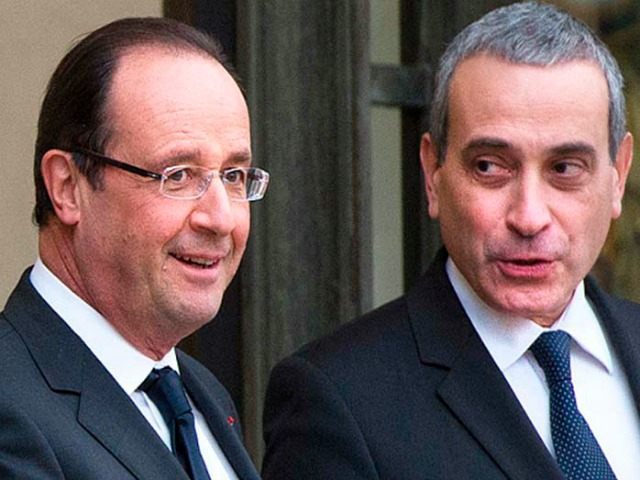In the immediate wake of the Vatican sacking of a gay priest who attempted to upstage the Vatican Synod on the Family by “coming out” with his boyfriend the day before it began, Socialist French President François Hollande has withdrawn his proposal of Laurent Stefanini, an openly gay official, for the post of ambassador to the Holy See.
Hollande named Stefanini to the post, reportedly with the support of the Archbishop of Paris, Cardinal Vingt-Trois, last January, but the appointment was never approved by the Holy See. Usually, a new ambassador’s credentials are accepted within a month-and-a-half, and the Vatican’s prolonged silence was interpreted as a rejection of Hollande’s choice.
Now, France’s Libération newspaper has cited official sources as saying the French President had finally given up after months of trying to appoint Stefanini.
“It’s dead,” one source close to the affair told the newspaper.
Some outlets, like The Huffington Post, incorrectly reported that the Vatican rejected Stefanini because of his “sexual orientation.” Stefanini, it must be remembered, is not just a homosexual, but also a gay activist. He took a high profile position in favor of same-sex marriage laws when the issue was being debated in France in 2013.
Pope Francis met with Stefanini in April and reportedly told him that France’s legalization of same-sex marriage meant he could not allow him to serve at the Vatican. At the time, Reuters speculated that the Pope also worried that Stefanini could decide to marry his partner while at the Vatican.
In January, the Pope traveled to the Philippines shortly after the Stefanini appointment, where he warned about “ideological colonization” threatening to destroy the family.
“The family is threatened by growing efforts on the part of some to redefine the very institution of marriage, by relativism, by the culture of the ephemeral, by a lack of openness to life,” Francis said. “These realities are increasingly under attack from powerful forces, which threaten to disfigure God’s plan for creation.”
In diplomatic circles, it is considered a courtesy for governments not to name Catholic envoys whose personal lives conflict with Church teaching because the Vatican sees it as setting up uncomfortable situations for all involved.
This is not the first time the Holy See has rejected France’s proposals. France, in fact, has a history of intentionally provocative diplomatic appointments to the Holy See. In 2008, French President Nicolas Sarkozy named Jean Loup Kuhn-Delforge, a diplomat living in a civil union with another man, as France’s ambassador to the Holy See. Rather than reject him outright, Pope Benedict XVI stalled on the confirmation for an entire year. In retaliation, France demanded that the Vatican withdraw its longtime Papal Nuncio to Paris, which the Vatican did.
Libération said that the Hollande government will likely not put forward another candidate for the Vatican post before the next French presidential election in 2017.
Other French politicians have been quick to criticize Hollande for supposedly “caving in” to the Vatican.
“It takes more guts not to yield to the Pope; I do not know why we don’t say it more strongly,” complained one ministerial source to the newspaper. “If you cave in to the Vatican, you hand a victory to French fundamentalists, and that we cannot do.”
Another adviser to the executive simply said, “It’s a shame.”
Follow Thomas D. Williams on Twitter @tdwilliamsrome.

COMMENTS
Please let us know if you're having issues with commenting.